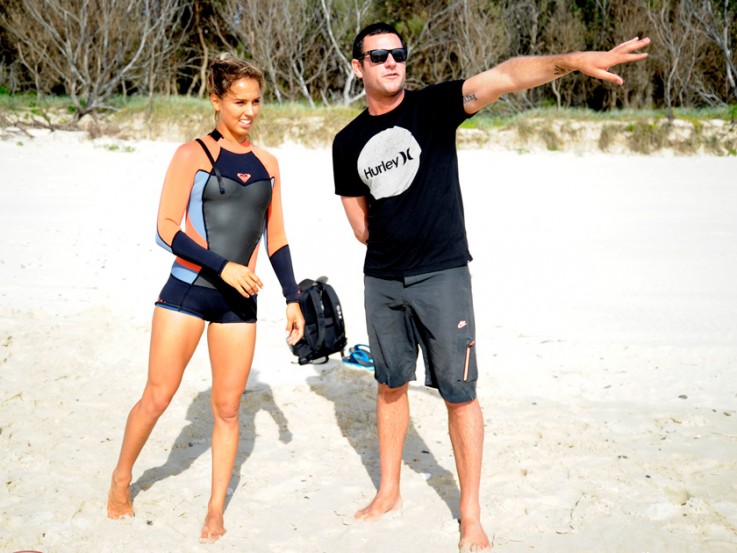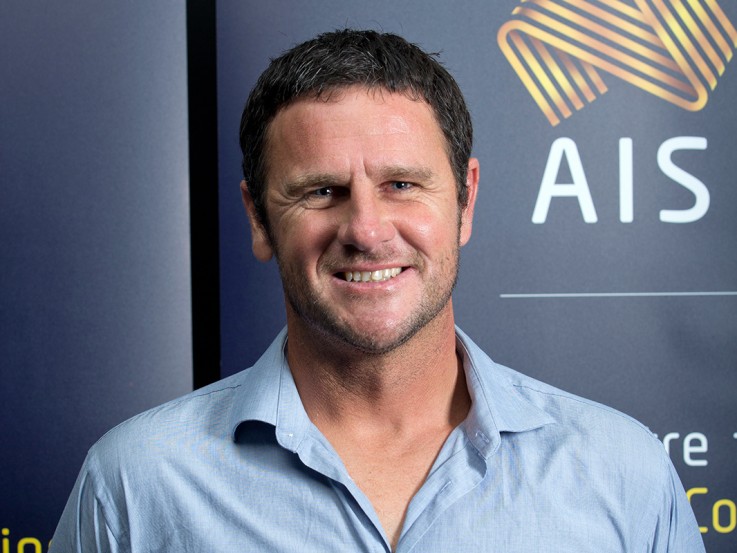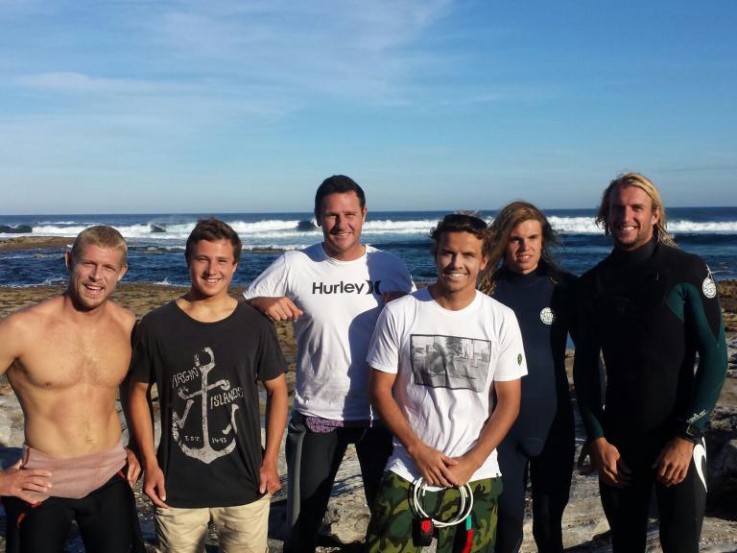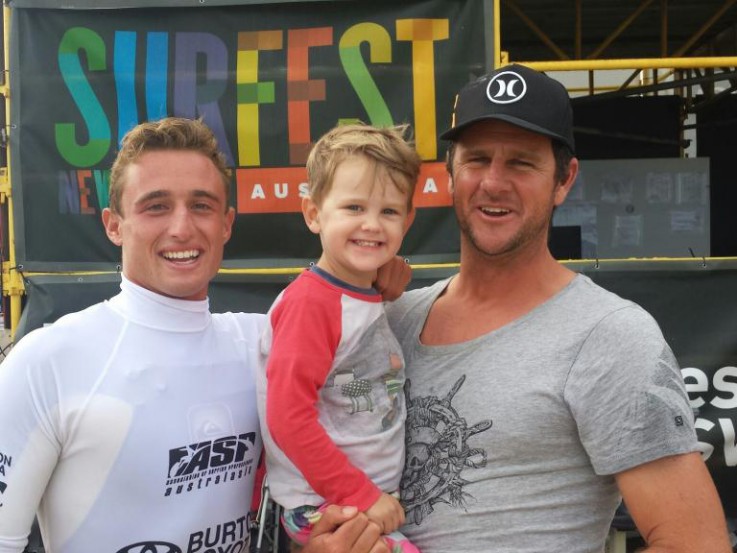Andy King - Surfing Australia National Coach
Almost one year ago, following a seven-year stint with the Red Bull in the United States, Andy King returned to Australia to take up residence at the Hurley High Performance Centre (HPC) on the Gold Coast and tackle the role of Surfing Australia’s National Coach. We spoke to Andy to find out what brought him home and what it takes to be a successful international surf coach.
What led you to this role?
After being on the road for seven years’ straight with the Red Bull Surfing Program, I really wanted to bring it back to Australia and work with Australian athletes. I saw there was an opportunity to make the changes that were needed with our development, the timing was right and so I came home to try and make a difference here.
What were the opportunities you saw in Australia?
Our athletes were becoming really predictable, which was largely a result of over-competing. They were being boxed-in too early and losing the skills of creativity and flair - those things are really important to our sport and are being rewarded now. That wasn’t the case a decade ago so our system had worked really well, but I noticed we were still coaching to the old system and were losing our relevancy. I saw an opportunity to get some creativity and energy back into our surfing.
What other changes have you seen in surfing over the past few years?
Surfing has moved more towards snowboarding and skate. The best guys on the tour are looking to those sports and the likes of Shaun White, Ryan Sheckler and Tony Hawk for inspiration. Those guys are masters at getting above the lip and performing aerials, they’ve also invested a lot of time to practice those movements and get their landings right.
What’s your plan of attack for Australian surfing?
It’s going to take time to break a system that’s been in place for decades and decades and we may still be irrelevant for the next three to five years. We’re used to following the system, it’s part of our culture, so it’s a big change and naturally there’s resistance. But change is important for us to remain relevant.
It’s really easy as a coach to pull someone back who takes risks and really attacks it but it’s harder to train someone to adopt the skill of risk and commitment. That level of risk is getting trained out of our athletes. Surfing is an extreme sport to some extent – you’ve got to throw yourself over the ledge on dry reef and you’ve got to get air, so the athletes should be rewarded for taking those risks. But we still have to ensure we care for the health and safety of our athletes, which is why we have a team of experts on hand here at HPC to monitor performance and to ensure we don’t cross the line and injure anyone; it’s a calculated risk.
What are your greatest challenges as a coach?
The [athlete’s] parents. Often they have no peripheral vision, which seriously inhibits their kid’s development. I’ve experienced parents who are communicating on behalf of 20-year olds. They are stripping their kids of the ability to learn and to take control. They’ve invested so much time and a lot of their income so I get that they have a vested interest but they need to let go. You learn by making mistakes and then learning from those mistakes. Parents need to provide the right support but also to let their kids have a go - they won’t have the right skills to become an elite athlete if they can’t interact on their own.
What’s the best part of being a coach?
I just love seeing people reach their goals. It’s the point of interaction when you’ve helped someone make a positive change, through buy-in, building a relationship based on trust and then clicking with that person. It’s that moment that is the most rewarding.
What has helped you in your career?
Great relationships and good networks - there are thousands of people in my network and everyone has helped me in their own way. I couldn’t say there’s just one person that deserves credit above anyone else. Mentoring is also a big part of our sport and our elders naturally pass on their skills and wisdom as their surfing careers finish. If you don’t have a good support network and you’re just winning for yourself then it’s not a particularly rewarding pursuit. I’ve seen people who have won that way but then realised there’s nobody to celebrate with. To be a successful athlete you need a holistic approach and you need to have the right people with you, otherwise there’s no point, or at least no one to share it with!
What are some of your career highlights?
I can honestly say it’s not the titles. I’ll never claim anyone’s title, so my greatest highlight is probably learning to communicate really well, with different groups of people and especially with women! I was really good at what I did but I was one-dimensional so I had to learn how to communicate well with all of my athletes. Learning how to get high performance and the best results out of women is completely different to men - that was one of the hardest things I’ve learned to tackle. With men you can be super direct, women are better in a group, and work well to achieve collectively rather than on an individual basis. You can get massive gains through that approach. So that alone - learning to structure my approach and communicate differently - has been one of my biggest victories.
What advice do you give to your athletes?
I try to help them understand the importance of creating relationships, as good social skills, interactions and networks are vital. I see athletes who don’t know how to develop these skills because they are so focused on surfing – they’re not thinking about career options beyond that. I try to get them to think about what skills they’ll need to interact outside of competitive surfing. I also really encourage them to stay at school - education and schooling often doesn’t exist in your headspace when you’re an athlete. Such a small percentage of athletes make it professionally so you have to have other options. There are some high-performance high schools now, which are open to flexible study options. There’s an excellent surfing program on the Gold Coast, similar to the colleges in America, where they encourage students to learn (without having to resort to home schooling) while still having the freedom to attend events. Surfing is now recognised as a mainstream sport and schools are supporting that. I think it’s also our responsibility to encourage more schools to enable their elite athletes to complete their schooling flexibly.
What advice would you give to anyone interested in getting involved in high-performance surfing?
It all starts with your passion and getting involved at a local level. Our sport is expanding so quickly and there are so many athletes involved. Your journey might grow alongside an athlete or by helping out at your local board riders club. But it takes time and there are no instant rewards. You’ve got to ask yourself the reason you are doing it – is it to become a millionaire or because you love it? That’s the real question because there aren’t many millionaires doing what we’re doing, that’s for sure!
Where can we find you online?
| Web: | www.surfingaustralia.com |
| LinkedIn: | www.linkedin.com/214053749 |
Posted by: Jaclyn Knight, on June 10, 2014
Categories: Interviews
Latest Posts
Craig Sims - White Horses & Surfing Life Publisher
Luke Kennedy - Editor of Tracks Magazine
Simon ‘Swilly’ Williams - Surf Photographer
Jarra Campbell - the Bondi Alchemist
Greg Gordon - Owner of CR Surf
Shayne Nienaber - Surf Photographer
Alexa Hohenberg - Owner of Still Stoked
Christine Deveney - TapaReef Owner & Creator
Russell Ord - Surf Photographer
Richard Kotch - Surf Photographer
Categories
Interviews
Articles
Videos
Press Releases
Quiz
Archive
December 2018
November 2018
October 2018
September 2018
August 2018
July 2018
June 2018
May 2018
April 2018
March 2018
February 2018
January 2018
November 2017
January 2017
December 2016
November 2016
October 2016
September 2016
August 2016
July 2016
June 2016
May 2016
April 2016
March 2016
February 2016
January 2016
December 2015
November 2015
October 2015
September 2015
August 2015
July 2015
June 2015
May 2015
April 2015
March 2015
February 2015
January 2015
December 2014
November 2014
October 2014
September 2014
August 2014
July 2014
June 2014
May 2014
April 2014
March 2014
February 2014
January 2014
December 2013
November 2013
October 2013
September 2013
August 2013
July 2013
June 2013
May 2013
April 2013
March 2013












